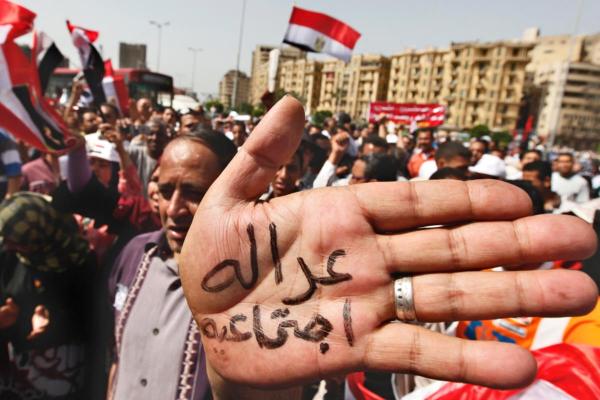US imperialism
Tariq Ali: The Arab intifada and US power (video)
Tariq Ali presents a talk to the British Socialist Workers Party's Marxism 2011, held in
Cuba: Historian's party membership restored

Message to my readers and friends
By Esteban Morales. Translation by Walter Lippmann for CubaNews
July 7, 2011 -- This is to let you know that last week I was summoned by the Appeals Commission of the Central Committee of the Communist Party of Cuba to a meeting in which I was informed of their decision to nullify the separation order from the party given last year by the Playa Municipality Committee and to return my card and full membership.
I'd like to seize the opportunity to state how grateful I am for all the support I have received in the last few months from friends, intellectual colleagues and people I've never met who got in touch with me through different ways, made statements about this issue, or simply stopped me in the street for an update on my situation.
I also want to thank my family for their support in these difficult and yet extremely enlightening days. I will keep on working as hard as I have on the topics I have been writing about in my blog. I'm looking forward to your attention.
Egypt: Left debates the Arab Spring, democracy and imperialism

"For social equality" – May Day 2011 in Cairo.
Review: `The Muslim revolt: A journey through political Islam'

By
June 25, 2011 -- http://rupensavoulian.wordpress.com, posted at Links International Journal of Socialist Renewal with permission -- Since the September 11, 2001, twin tower attacks, there has been renewed interest in the questions of Islam, political Islamism and jihadism. Books have been published by the truckload, seminars bringing together various political scientists and experts have been held, reams of paper analysing the origins and trajectory of political Islam have been published, and the airwaves resonate with talkback from pundits about the impact of Islam and Islamism in the world. How can one make sense of all this? Where does one begin?
Western economic attacks against Arab democracy

By Patrick Bond
June 1, 2011-- Rosa Luxemburg Foundation Palestine office, posted at Links International Journal of Socialist Renewal with permission -- In their latest documents and meetings, the G8, the World Bank and the International Monetary Fund (IMF) reacted to the democratic movements in the Arab world: The recipe calls – as it did before the popular ousting of the Tunisian and Egyptian presidents – for privatisation, austerity measures and “market liberation”. Patrick Bond, economic advisor to the new South African government from 1994-2002, analyses the ramifications of the economic campaign on Tunisia, Egypt, Libya and Palestine.
Washington’s seeding of the Arab democratic revolution
Comparing 1911 and 2011: What's relevant for socialists today?

The German gunboat, Panther, tried to halt French claims to Morocco in 1911.
Hondurans organise historic welcome for Zelaya; 'Democracy Now!' interview with Manuel Zelaya
Zelaya: "Without democracy there are no human rights ... No blood was shed in vain because we are in an ongoing struggle."
Hugo Chavez: "Mel Zelaya has returned to his homeland, a great victory of the Honduran people, down with the dictatorship, long live the people's power ... "
The killing of bin Laden and the ugly tribalism of US politics

Three o’clock in the morning on May 1, Washington DC erupts in celebration
End the United States' sanctions against Venezuela

The government of Hugo Chavez has used Venezuela's oil wealth to radically improve the wellbeing of the people.
A statement by the Australia-Venezuela Solidarity Network
May 28, 2011-- AVSN -- On May 24, the United States' State Department unilaterally imposed sanctions against Venezuela's state-owned oil company, Petróleos de Venezuela, S.A. (PDVSA), accusing it of undermining the US sanctions against Iran by sending two cargo ships delivering US$50 million worth of reformate -- a blending component used to improve the quality of gasoline. The sanctions, which will last for two years, prevent PDVSA from entering into contracts with the US government, and bar it from import-export finance programs and obtaining licences for US oil processing technology.

![[Source Unknown] [Source Unknown]](http://www.jadaliyya.com/content_images/3/egypt-protest-sign.jpg)